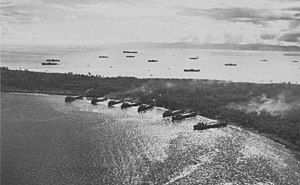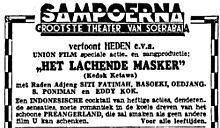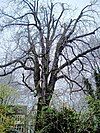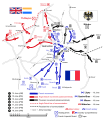Portal:Netherlands
Welcome to the Netherlands Portal
Welkom bij het Nederlandportaal!

|

|
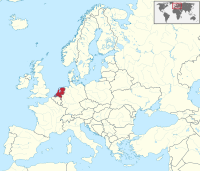
| |
The Netherlands, informally Holland, is a country in Northwestern Europe, with overseas territories in the Caribbean. It is the largest of the four constituent countries of the Kingdom of the Netherlands. The Netherlands consists of twelve provinces; it borders Germany to the east and Belgium to the south, with a North Sea coastline to the north and west. It shares maritime borders with the United Kingdom, Germany, and Belgium. The official language is Dutch, with West Frisian as a secondary official language in the province of Friesland. Dutch, English, and Papiamento are official in the Caribbean territories.
The Netherlands has been a parliamentary constitutional monarchy with a unitary structure since 1848. The country has a tradition of pillarisation (separation of citizens into groups by religion and political beliefs) and a long record of social tolerance, having legalised prostitution and euthanasia, along with maintaining a liberal drug policy. The Netherlands allowed women's suffrage in 1919 and was the first country to legalise same-sex marriage in 2001. Its mixed-market advanced economy has the eleventh-highest per capita income globally. The Hague holds the seat of the States General, Cabinet, and Supreme Court. The Port of Rotterdam is the busiest in Europe. Schiphol is the busiest airport in the Netherlands, and the fourth busiest in Europe. Being a developed country, the Netherlands is a founding member of the European Union, eurozone, G10, NATO, OECD, and WTO, as well as a part of the Schengen Area and the trilateral Benelux Union. It hosts intergovernmental organisations and international courts, many of which are in The Hague. (Full article...)
Selected biography
Anne and her family moved to Amsterdam in 1933 after the Nazis gained power in Germany, and were trapped by the occupation of the Netherlands, which began in 1940. As persecutions against the Jewish population increased, the family went into hiding in July 1942 in hidden rooms in her father Otto Frank's office building. After two years, the group was betrayed and transported to concentration camps. Seven months after her arrest, Anne Frank died of typhus in the Bergen-Belsen concentration camp, within days of the death of her sister, Margot Frank. Her father Otto, the only survivor of the group, returned to Amsterdam after the war to find that her diary had been saved, and his efforts led to its publication in 1947. It was translated from its original Dutch and first published in English in 1952 as The Diary of a Young Girl.
Did you know (auto-generated)

- ... that the first recording of Bach's Kreuzstab cantata was a 1939 Dutch live broadcast sung by Mack Harrell, 25 years before the 1964 German recording by his protégé Barry McDaniel?
- ... that two American officers bribed Japanese troops with their watches to have Dutch medical officer Henri Hekking allocated to their prisoner of war camp?
- ... that the H. J. Lovink Pumping Station, a national monument of the Netherlands, was used to reclaim the Flevopolder?
- ... that Dutch squatters fighting eviction from De Vloek (The Curse) briefly occupied Scheveningen Pier?
- ... that Leonie ter Braak made her film debut in The Marriage Escape, the film of Dutch origin with the most cinema ticket sales in 2020?
- ... that in March 2022 Sonja van den Ende was the only Dutch journalist to report from the Russian-occupied Donbas on the war in Ukraine?
Categories
Related portals
Featured content
Extended content
| ||
|---|---|---|
|
This page gives an overview of all featured content ( Featured articles
Featured lists
|
Things you can do

The Dutch Wikiportal is currently under construction. Help would be greatly appreciated!
See also:
Add yourself to the category of Wikipedians located in the Netherlands.
Wikiprojects

|
You are invited to participate in the WikiProject Netherlands, a WikiProject dedicated to developing and improving articles about the Netherlands. |

![Image 1 Cover, first printing (1929) Drama dari Krakatau ([ˈdrama daˈri kraˈkatau]; Drama of Krakatoa) is a 1929 vernacular Malay novel written by Kwee Tek Hoay. Inspired by Edward Bulwer-Lytton's 1834 novel The Last Days of Pompeii and the 1883 eruption of Krakatoa, the sixteen-chapter book centres on two families in 1920s Batam that are unknowingly tied together by siblings who were separated in 1883. The brother becomes a political figure, while the sister marries a Baduy priest-king. Ultimately, these families are reunited by the wedding of their children, after which the priest sacrifices himself to calm a stirring Krakatoa. First published as a serial in Kwee's magazine Panorama between 7 April and 22 December 1928, Drama dari Krakatau was written over a period of two months after the author was asked to prepare a "sensational" story for a film. Before the final instalment had been published, the novel had already been adapted for the stage. Although Kwee was known as a realist and researched the volcano before writing, Drama dari Krakatau is replete with mysticism. Thematic analyses have focused on the depiction of indigenous cultures by Kwee (himself ethnic Chinese), as well as geography and nationalism. As with other works of Chinese Malay literature, the book is not considered part of the Indonesian literary canon. (Full article...)](/uploads/wikipedia/en/d/d2/Blank.png?auto=webp)





